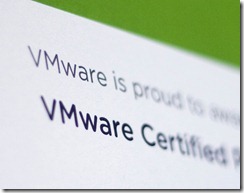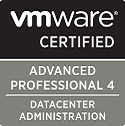 Firstly, this is not about the 1% associated with the Occupy WallSt campaign! As widely reported on Twitter and the blogosphere the 2012 vExpert program is up and running – I won’t go into the changes this year as there is plenty of coverage for that. In VMware’s own words;
Firstly, this is not about the 1% associated with the Occupy WallSt campaign! As widely reported on Twitter and the blogosphere the 2012 vExpert program is up and running – I won’t go into the changes this year as there is plenty of coverage for that. In VMware’s own words;
The annual VMware vExpert title is given to individuals who have significantly contributed to the community of VMware users over the past year. The title is awarded to individuals (not employers) for their commitment to sharing their knowledge and passion for VMware technology above and beyond their job requirements.
Sounds great, let’s fill in that application form right? Before you apply have you ever paused to consider what is it you’re actually doing, and for whom? In an interesting article about ‘going social’ posted just a few weeks ago Dr Michael Hu talked about six myths companies believe are associated with a social strategy, one of which is the need to reach every customer to be effective. He refutes this, stating;
Instead, you need to discover the small number of “superfans” who want deeper engagement and then harness their enthusiasm to manage and strengthen other customer relationships on behalf of the brand. That’s the real http://premier-pharmacy.com/product/paxil/ power of community – you tend to the 1% who tend the other 99%.
That describes the vExpert in a nutshell – you are the 1%!
You could see this through cynical eyes as VMware using the community for their own benefit but like many of my peers I’ve been working in IT for well over a decade and virtualisation is the first time I’ve found a community that really benefits everyone involved. Maybe it’s the advent of social networking, maybe it’s the convergence of the various technologies or maybe it’s the time and effort expended by VMware (and geek herder extraordinaire @jtroyer) but for some reason it works where it never did before. I enjoy being part of the VMware community and I know it adds value for me (and therefore my employer) and many other people. While the 1% add great value on VMware’s behalf they also benefit greatly from the experience themselves. Just bear in mind that much as we’d all like VMware’s recognition, VMware need us too!
I’m already vExperienced and I’d love to be a vExpert. Fingers crossed!
ps. Apologies to Alex Maier who now runs the vExpert program – I’d already made up my ‘poster’ before I knew!



